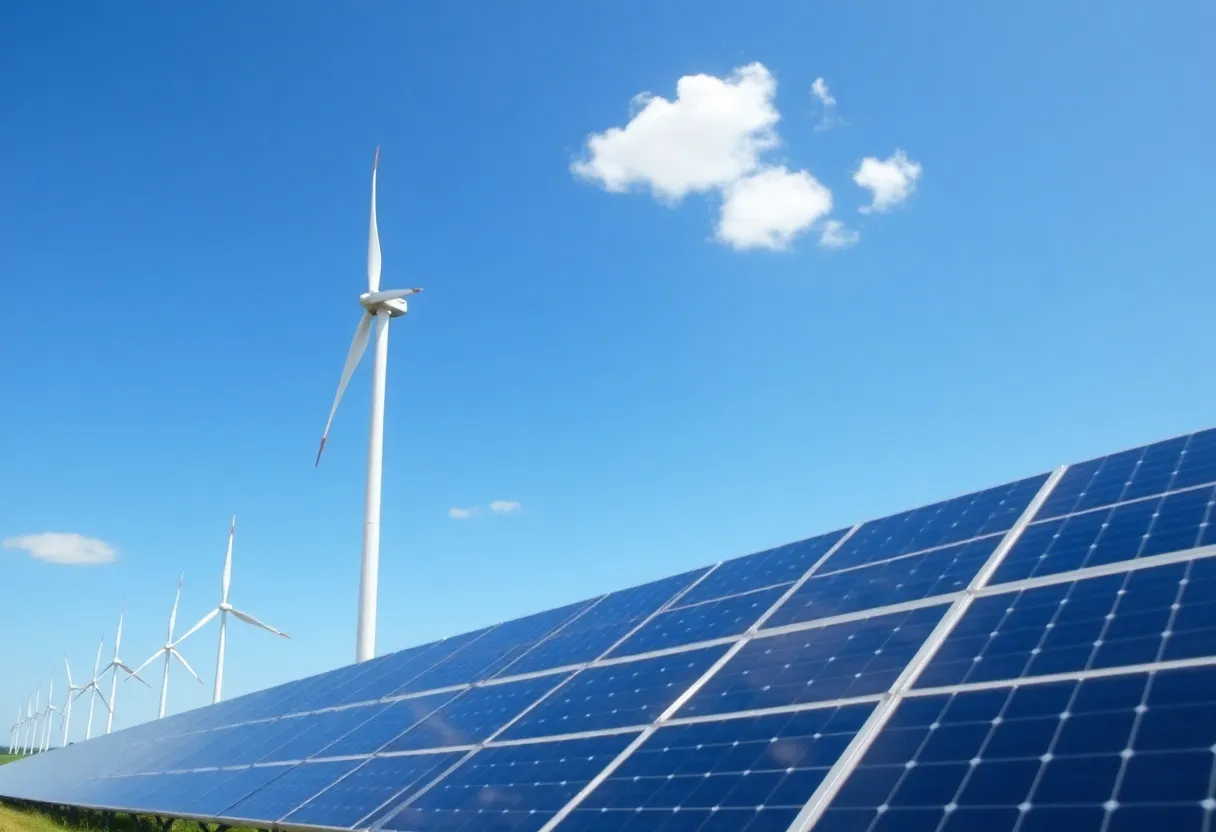News Summary
The IRS has released new guidance clarifying the requirements for starting construction on wind and solar projects, emphasizing the Physical Work Test. Developers must adhere to revised criteria to qualify for tax credits, including a stricter application of the five percent safe harbor for smaller solar projects. The notice aims to align with federal policies promoting energy independence while developing cleaner energy solutions, urging timely compliance from developers to secure available incentives.
Washington, D.C. – On August 15, 2025, the Internal Revenue Service (IRS) issued Notice 2025-42, clarifying the “beginning of construction” requirements for wind and solar facilities. This new guidance aims to solidify the regulations governing tax credits under Sections 45Y and 48E of the Internal Revenue Code, in response to President Biden’s Executive Order 14315 aimed at reducing subsidies for foreign-controlled energy sources.
The notice is effective for projects that do not begin construction under previous guidelines before September 2, 2025. Developers must familiarize themselves with the emphasis on the Physical Work Test, which remains largely intact. However, there are significant shifts concerning the five percent safe harbor provision which now applies only to small solar projects with a nameplate capacity of 1.5 MW or less.
From this point forward, large wind and solar projects are required to adhere strictly to the Physical Work Test, effectively eliminating the five percent safe harbor option for these larger facilities. Only projects that have already commenced construction according to earlier IRS guidance before the September deadline can still claim this safe harbor. Note that this change impacts developers planning to capitalize on tax credits, urging them to begin construction promptly to meet the necessary requirements.
Details of the Physical Work Test
The Physical Work Test consists of substantial physical activities that must take place on-site or off-site, with specific activities recognized for both wind and solar projects. Notable physical work for wind facilities may include excavation for turbine foundations and pouring concrete pads, while activities for solar facilities could involve constructing supporting structures for solar panels. Understanding these activities is crucial for developers aiming to meet the new guidelines.
Continuity and Future Requirements
Importantly, the continuity requirement set forth by the IRS remains unchanged. All projects must be placed in service by the end of the calendar year that falls four years after construction begins. This important timeline reinforces the necessity for developers to maintain progress toward operational status.
This new notice does not address any related measures concerning the newly established Foreign Entities of Concern (FEOC) framework. Future IRS guidelines will clarify how this framework interacts with the beginning of construction standard, per a footnote in Notice 2025-42. This aspect underlines the potential further complications that developers may face as compliance requirements evolve.
Compliance Under the One Big Beautiful Bill Act
Additionally, developers should be aware of the stipulations under the One Big Beautiful Bill Act (OBBBA), which mandates that wind and solar facilities must commence construction before July 5, 2026, or be operational by December 31, 2027, in order to qualify for available tax incentives. These expectations further reinforce the urgency of adhering to the newly established guidelines.
Historical Context
This guidance builds upon previous IRS communications, including Notice 2013-29 and Notice 2018-59, which outlined similar criteria for the initiation of construction. The latest changes signal a move toward stricter regulations meant to provide clearer eligibility measures for tax credits associated with clean electricity production and investment.
In summary, developers of wind and solar projects must navigate the updated requirements meticulously to ensure compliance and eligibility for tax credits. As the energy landscape evolves and federal policies tighten, understanding these changes is critical for the successful advancement of renewable energy projects.
Deeper Dive: News & Info About This Topic
HERE Resources
IRS Tightens Construction Requirements for Renewable Energy Tax Credits
How to Make Your Home Renovation Eco-Friendly: Sustainable Tips for Every DIYer
How to Enhance Your Home’s Curb Appeal: Effective DIY Tips for Home Improvement
California Reaches 67% Renewable Energy Milestone
Additional Resources
- OurQuadCities: IRS to Keep Wind, Solar Companies from Tax Breaks
- RTO Insider: IRS Guidance on Wind and Solar Credits
- New York Times: IRS Wind, Solar Tax Credits
- PwC: IRS Sheds Light on Construction Rules for Wind and Solar Credits
- Wikipedia: Renewable Energy in the United States
Author: STAFF HERE LOS ANGELES WRITER
The LOS ANGELES STAFF WRITER represents the experienced team at HERELosAngeles.com, your go-to source for actionable local news and information in Los Angeles, Los Angeles County, and beyond, specializing in "news you can use" with coverage of product reviews for personal and business needs, local business directories, politics, real estate trends, neighborhood insights, and state news affecting the area—with deep expertise from years of dedicated reporting and strong community input, including local press releases and business updates, while delivering top reporting on high-value events like the Academy Awards, LA Auto Show, and Los Angeles Marathon, extending coverage to key organizations such as the Los Angeles Area Chamber of Commerce and the Los Angeles Tourism & Convention Board, plus leading businesses in entertainment and technology like Warner Bros. and SpaceX, and as part of the broader HERE network including HEREAnaheim.com , HERECostaMesa.com , HEREHuntingtonBeach.com , and HERESantaAna.com , providing comprehensive, credible insights into Southern California's dynamic landscape. HERE Anaheim HERE Beverly Hills HERE Coronado HERE Costa Mesa HERE Hollywood HERE Huntington Beach HERE Long Beach HERE Los Angeles HERE Mission Viejo HERE San Diego HERE Santa Ana





